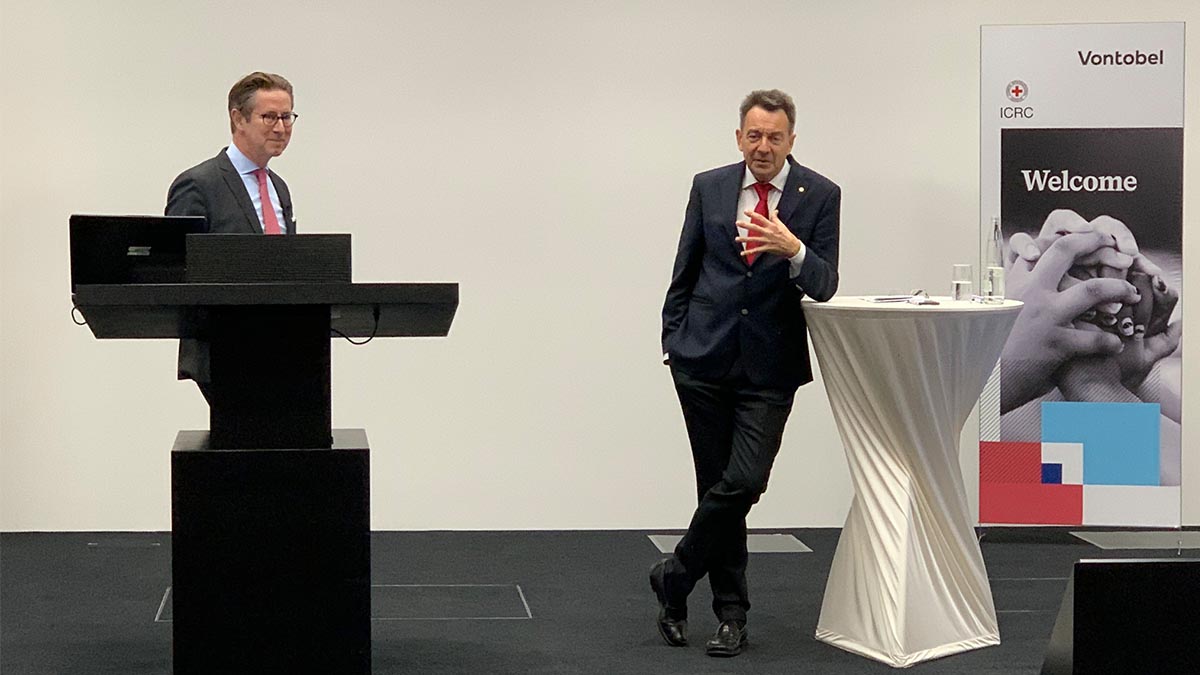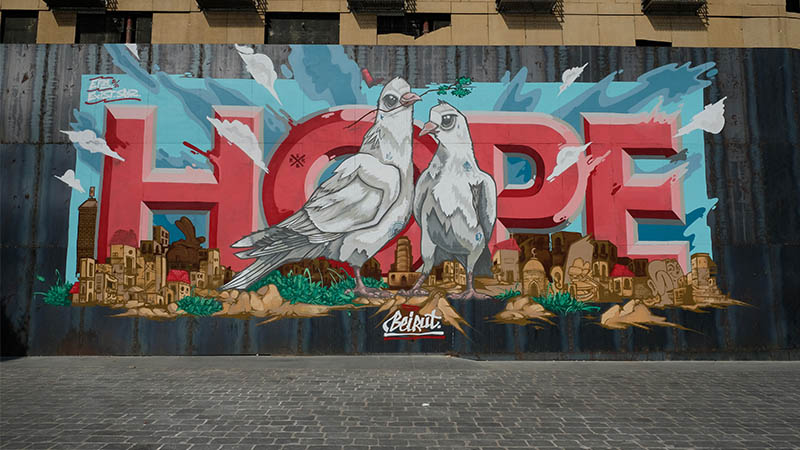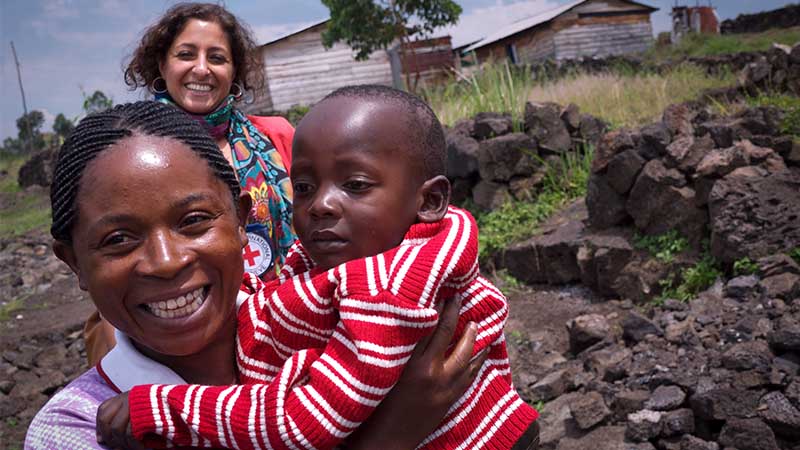Vontobel fundraising initiative supports the reunification of families torn apart
Through its internal 2020 fundraising initiative, Vontobel is supporting the ICRC's Restoring Family Links program. This program brings together families who have been torn apart by military conflicts, natural disasters and migration. In a livestream, ICRC President Peter Maurer presented digital solutions for humanitarian work and spoke about the current challenges facing the ICRC. Watch the replay now.
Peter Maurer also thanked Vontobel for last year’s donation, which made it possible for 70,000 young children in Nigeria to access the digital doctor ALMANACH. According to recent study results, sick children treated by local health workers with support from ALMANACH recover three-times more quickly.
A leader in reuniting families
Peter Maurer then spoke about the “Restoring Family Links” program. Today, the International Committee of the Red Cross (ICRC) is the most active organization in the world for reuniting families, and the legal basis of its operations is the Additional Protocols to the Geneva Conventions. Thanks to its extensive network, each year the ICRC can give clarity about the whereabouts of around 10,000 lost family members. As a global organization, the ICRC works with national Red Cross and Red Crescent Societies, which in turn have regional locations of their own. The Restoring Family Links dates back to Franco-Prussian War of 1870/1871.

Georg Schubiger, Head of Wealth Management, and Peter Maurer, ICRC President, launch the internal Vontobel fundraising initiative 2020
Traditional search methods are reaching their limits
It is true that in 2019, the ICRC was able to find 10,000 lost family members. There are now, however, 25,000 new missing persons cases and a total of 140,000 yet unsolved cases. It is impossible to handle every missing person search with traditional methods alone. The digital search platform “Trace the Face” is a new solution launched in Europe in 2012. Since then, there has been a steady increase in the number of family members who have been reunited.
“Trace the Face” search platform increases the success rate
For security and data protection reasons, a large proportion of search requests are processed in the “Trace the Face” back office. However, people searching for relatives can also publish their own photos on the public website. Ideally, someone will recognize the person in the photo and contact the organization. The ICRC aims to implement “Trace the Face” worldwide. The search platform will link all Red Cross and Red Crescent Societies as well as ICRC delegations and will simplify, automate, and accelerate search processes. A part of the donations will also be used for publicity, because more people being aware of the digital search platform and using it means more families will be able to find their loved ones.
Missing sons reunited with their family
Here is a success story to illustrate the ICRC program: Two school-age boys were missing in the Jalalabad region of Afghanistan. The parents contacted the Red Cross in Afghanistan, which in turn contacted the Red Cross in Peshawar/Pakistan. Employees made their way to an orphanage in Pakistan carrying a photo of the parents. The missing sons recognized their parents in the photo and broke into tears. The family was then reunited after two years of separation. The ICRC’s goal is to create a global database to bring even more families together.
A selection of the questions and answers from the livestream
How does the ICRC exploit the opportunities of digitalization?
Humanitarian actions are becoming increasingly hybrid. Being present on site in crisis areas and establishing personal contact is still indispensable. At the same time, digital instruments support us and our colleagues in field to search for missing persons. Two examples are ALMANACH and “Trace the Face.” Big data is another key focus. It often enables us to identify the needs in fragile areas better than we could with an on-site analysis.
What risks do you see in digitalization?
Protecting people’s data and personal privacy is of the utmost importance. For this reason, we intend to take actions such as signing a new Memorandum of Understanding in December with ETH and EPFL. The memorandum is about data protection when using virtual instruments for humanitarian purposes and about initiating research work in this area. Data can do good, but if it falls into the wrong hands, it can be used to target groups or persecute individuals.
How do you feel when you meet a controversial person?
The essential idea in humanitarian work is to create a basic consensus of humanity. In order to do that, one needs the ability, the will, and the mandate to speak with people who have broken laws. If I only talked to good Samaritans, I couldn’t do my job. I have to establish a minimum consensus between warring parties to minimize the effects of war and violence.
How do you keep your optimism?
My optimism is nourished by the recognition that the ICRC receives for its humanitarian missions. The recognition far outweighs the moments of frustration when, for example, agreements are broken and we’re not able to fulfill our mission. Many of our 20,000 colleagues also talk about how they’re motivated by the resilience of people in countries who have experienced terrible things and still take their lives into their own hands every single day.







